Travels - > Middle East - > Syria & Lebanon - > Saladin Castle
SALADIN CASTLE
|
Saladin
Saladin (1138-1193), Muslim leader, who recaptured Jerusalem from the Crusaders. Born in Tikrit, Iraq, Saladin, as he is known in the West, was a Kurd; his Arabic name is Salah ad-Din Yusuf. At the age of 14 he joined other members of his family (the Ayyubids) in the service of the Syrian ruler Nur ad-Din. Between 1164 and 1169 he distinguished himself in three expeditions sent by Nur ad-Din to aid the decadent Fatimid rulers of Egypt against attacks by the Christian Crusaders based in Palestine. In 1169 he was made commander in chief of the Syrian army and vizier of Egypt. Although nominally subject to the authority of the Fatimid caliph in Cairo, Saladin treated Egypt as an Ayyubid power base, relying mainly on his Kurdish family and supporters. Having revitalized Egypt's economy and reorganized its land and naval forces, Saladin repelled the Crusaders and took the offensive against them. In September 1171 he suppressed the dissident Fatimid regime, reuniting Egypt with the orthodox Abbasid caliphate, but his reluctance to cooperate with Nur ad-Din against the Crusaders brought him to the brink of war with his former master. After Nur ad-Din's death in 1174, Saladin expanded his power in Syria and northern Mesopotamia, mainly at the expense of his Muslim rivals. Following the submission of Damascus (1174), Halab (Aleppo) (1183), and Mosul (1186), numerous Muslim armies, allied under Saladin's command, were ready to move against the Crusaders. In 1187 he invaded the Latin kingdom of Jerusalem, defeated the Christians at Hittin in Galilee (July 4), and captured Jerusalem the following October. In 1189 the nations of western Europe launched the Third Crusade to win back the holy city. Despite Saladin's relentless military and diplomatic efforts a Christian land and naval blockade forced the surrender of the Palestinian stronghold of Acre (now 'Akko) in 1191, but the Crusaders failed to follow up this victory in their quest for Jerusalem. In 1192 Saladin concluded an armistice agreement with King Richard I of England that allowed the Crusaders to reconstitute their kingdom along the Palestinian-Syrian coast but left Jerusalem in Muslim hands. On March 4, 1193, Saladin died in Damascus after a brief illness. Muslim historiography has immortalized Saladin as a paragon of princely virtue. He has held enduring fascination for Western writers, including modern novelists. Contributed
By: "Saladin,"
Microsoft® Encarta® Online Encyclopedia 2000
|
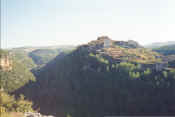
|
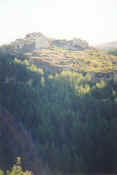
|
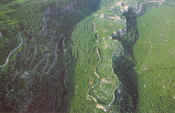
|
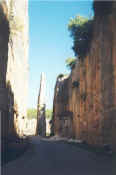
|
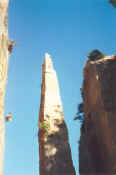
|
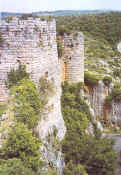
|
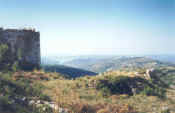
|

|
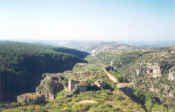
|
